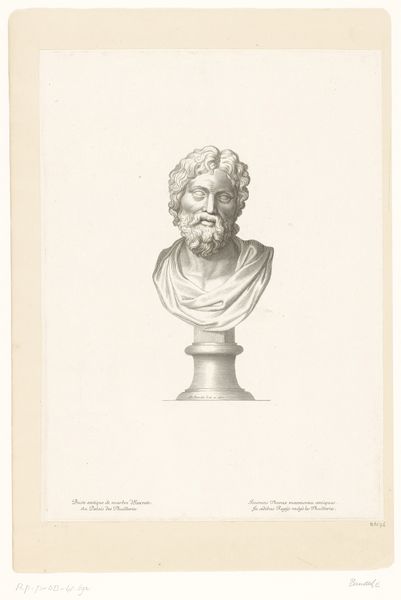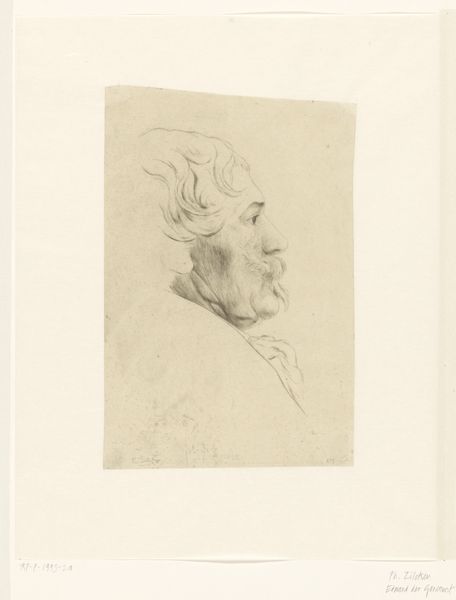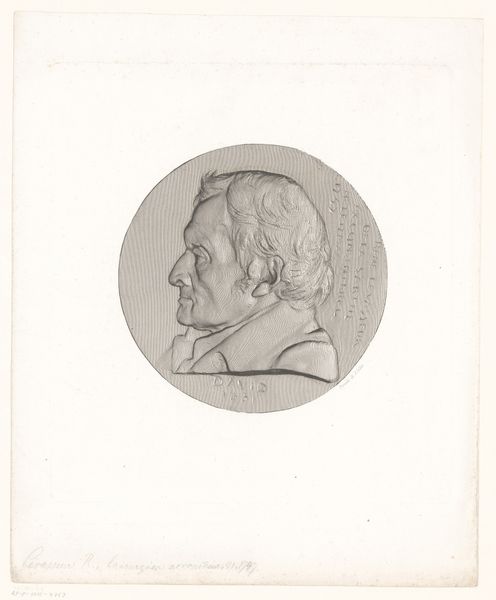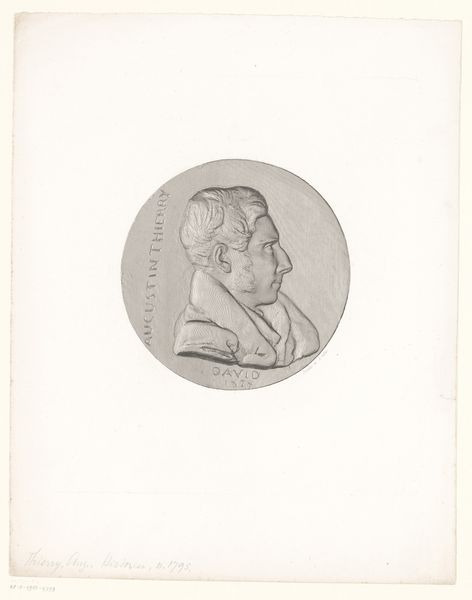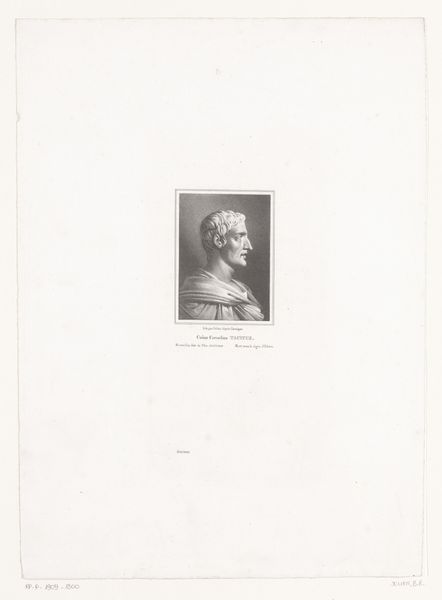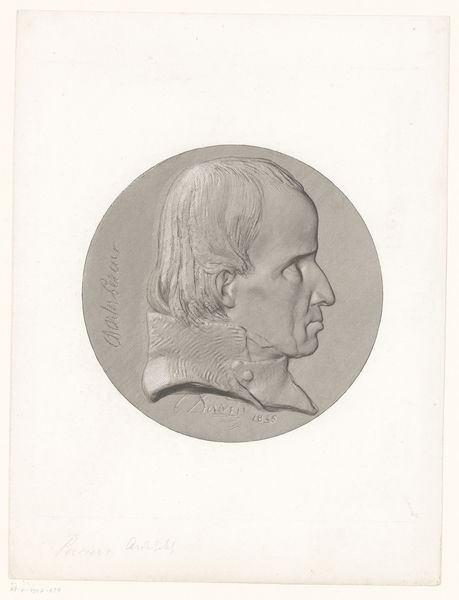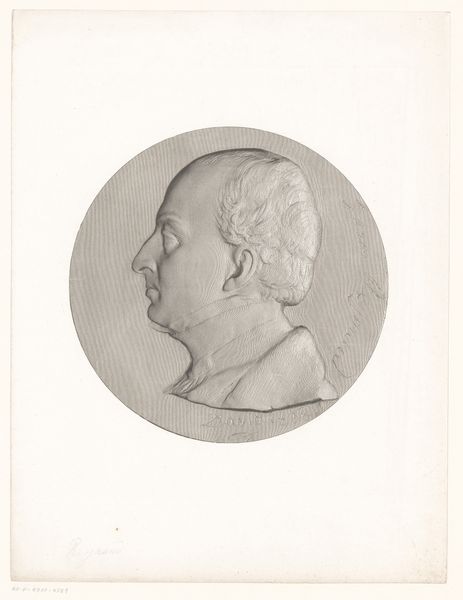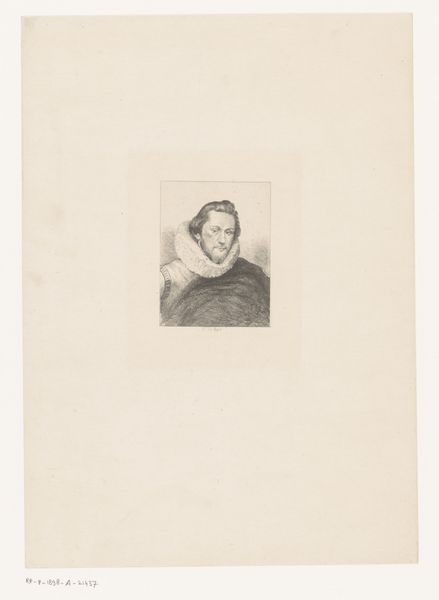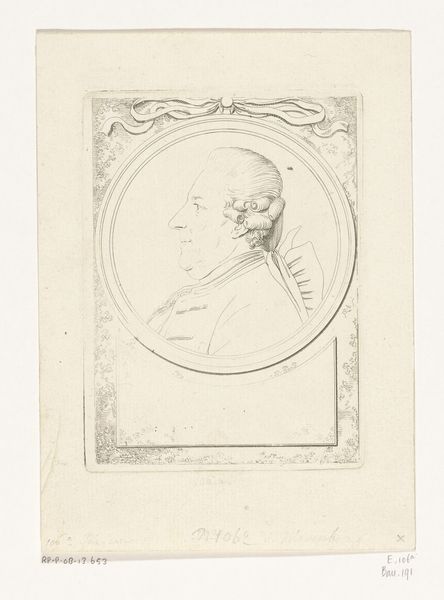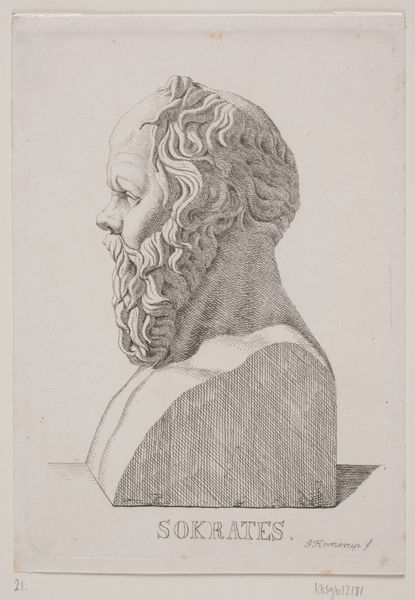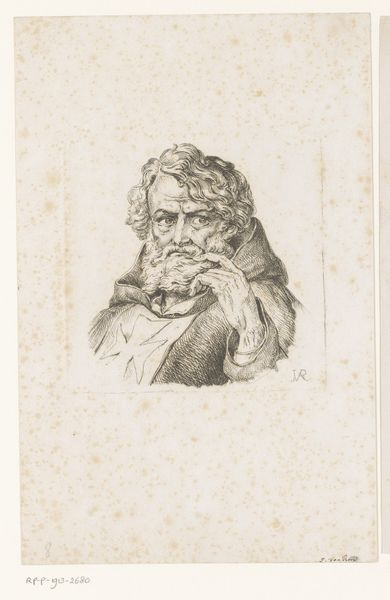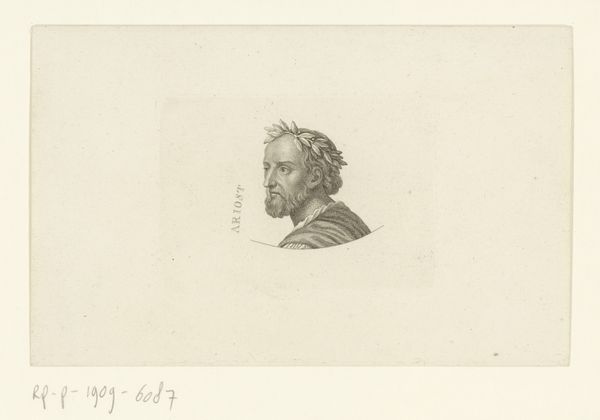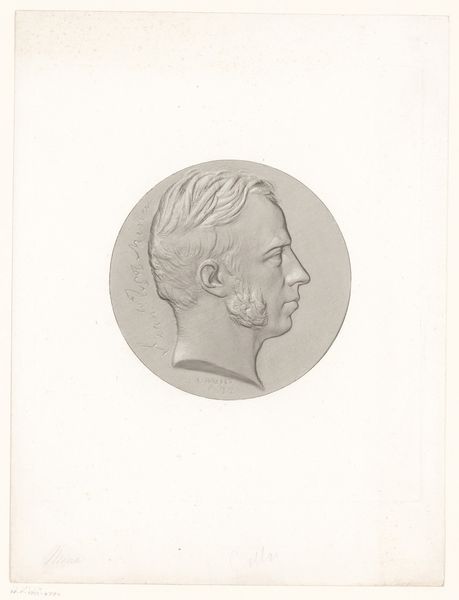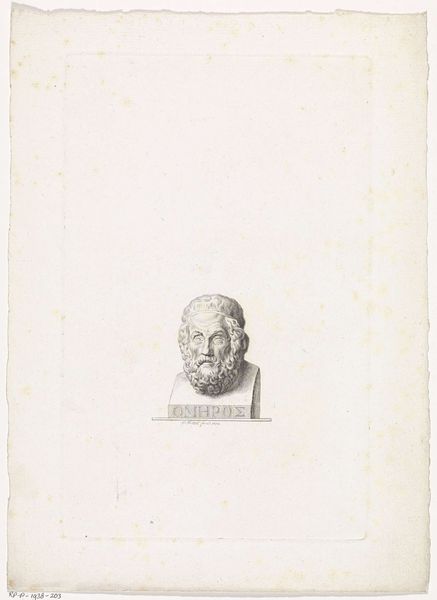
drawing, pencil
#
portrait
#
pencil drawn
#
drawing
#
light pencil work
#
baroque
#
pencil sketch
#
old engraving style
#
form
#
personal sketchbook
#
idea generation sketch
#
ink drawing experimentation
#
pencil
#
ink colored
#
sketchbook drawing
#
pencil work
#
academic-art
#
realism
Dimensions: height 177 mm, width 143 mm
Copyright: Rijks Museum: Open Domain
David Bailly rendered this drawing of Seneca’s bust, presenting us with a window into the enduring fascination with classical wisdom. Seneca, the Roman philosopher, embodies stoicism, a doctrine of inner peace through reason. Here, Seneca is depicted atop a book, a symbol of the wisdom he imparted. This echoes the ancient Greek tradition of placing busts of philosophers in libraries, as seen in the Villa of the Papyri in Herculaneum, where such images served as guardians of knowledge. Yet, the bust is lifeless, inanimate, and evokes the transience of mortal life. The motif of Seneca resurfaces throughout history, a testament to the cyclical nature of cultural memory. Renaissance artists frequently depicted Seneca, often emphasizing his gaunt features to underscore his moral rigor. The psychological power lies in the tension between the permanence of his teachings and the ephemerality of human existence. Seneca’s enduring presence in art signifies our ongoing quest for meaning in a transient world.
Comments
No comments
Be the first to comment and join the conversation on the ultimate creative platform.
